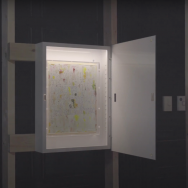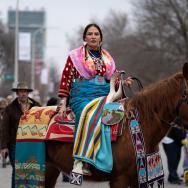The Neubauer Collegium for Culture and Society has awarded grants to seven new faculty-led research projects for 2022–23. The projects will bring together scholars from across the University and partners from institutions around the world. These new projects will join 12 projects that continue into the coming year, bringing the total number of research collaborations the center has supported since its inception in 2012 to 117.
“The faculty have again proposed important projects, and we at the Neubauer Collegium are delighted to be able to support them,” said Roman Family Director Jonathan Lear.
The following projects will launch at the Neubauer Collegium on July 1, 2022:
CEDAR Phase Two: Critical Editions for Digital Analysis
Edgar Garcia (English), Julie Orlemanski (English), Miller Prosser (Near Eastern Languages and Civilizations), Foy Scalf (Oriental Institute), Jeffrey Stackert (Divinity School), Ellen MacKay (English)
This project extends a multi-year digital humanities initiative that is producing critical editions of canonical texts. In the first phase, the research team built a database that includes the Gilgamesh Epic, the Hebrew Bible, and Shakespeare’s plays. In this phase they will add the Egyptian Book of the Dead, the Middle English poem Piers Plowman, the works of Herman Melville, and Indigenous American sign systems. They will also develop new modes of digital analysis and collaboration for scholars across different fields of expertise.
Death: From Philosophy to Medical Practice and the Law
Christos Lazaridis (Neurology), Lainie Friedman Ross (Pediatrics), Fernando Goldenberg (Neurology)
This project will complete a manuscript about the medical and philosophical aspects of death. The project will also convene an interdisciplinary group of experts to disentangle and potentially reconcile longstanding medical and legal debates about the neurological standard for determining brain death. The research team will be joined by the medical ethicist John Lizza as a visiting fellow.
Democracy and Capitalism: An Interdisciplinary Project in History, Law, and Politics
James Sparrow (History), Jon Levy (History), Chiara Cordelli (Political Science), William Novak (University of Michigan), Kate Andrias (University of Michigan), Stephen Sawyer (American University of Paris), Cécile Roudeau (Université de Paris), Bernadette Meyler (Stanford University), Dan Edelstein (Stanford University)
This research team aims to develop a paradigm for understanding the relationship between democracy and capitalism. By foregrounding the interdependence of capitalism and democracy since the eighteenth century, the project will advance understanding of the political economies that fuel so many contemporary crises.
Fossil Capitalism in the Global South
Elizabeth Chatterjee (History), Ryan Jobson (Anthropology), Victoria Saramago (Romance Languages & Literatures)
This project will offer fresh analysis of the dynamics of “fossil capital” by shifting the frame away from large industrial economies and toward the economic trajectories and energy systems of postcolonial societies in the Global South. Scholars from the University and Visiting Fellows from around the world—historians and anthropologists as well as literary critics and philosophers—will collaborate to offer new frameworks of interpretation.
Native Chicago
John Mark Hansen (Political Science), Nina Sanders (Curator and Cultural Consultant), Starla Thompson (Cultural Consultant)
The small settlement that would become Chicago was an important point of contact between the First Nations and colonial settlers. This research team will investigate how the groups influenced each other from first contact in the seventeenth century to the present. The research will contribute to a series of academic and public events and culminate with the publication of an edited volume.
Reimagining Cosmopolitanism
Dipesh Chakrabarty (History), Lisa Wedeen (Political Science)
This project considers what it means to be a citizen of the world today. Collaborators come from a variety of backgrounds and disciplines including anthropology, political science, history, English, geography, cultural studies, sociology, and cinema and media studies. Papers developed over the course of a three-year series of workshops will be published in The Oxford Handbook of Cosmopolitanism (2024).
Roots of Linguistic Identity
Marisa Casillas (Comparative Human Development), Ruthe Foushee (Psychology), Sharese King (Linguistics), Adriana Weisleder (Northwestern University) Kennedy Casey (UChicago Chatter Lab), Annette D’Onofrio (Northwestern University)
This interdisciplinary research team aims to integrate the methods of developmental psychology and sociolinguistics so as to better understand the intersection of language-acquisition and the earliest developments of social identity. The novel approach will focus on the learning of dialects by infants and young children.
—This story was first published by the Neubauer Collegium for Culture and Society.

